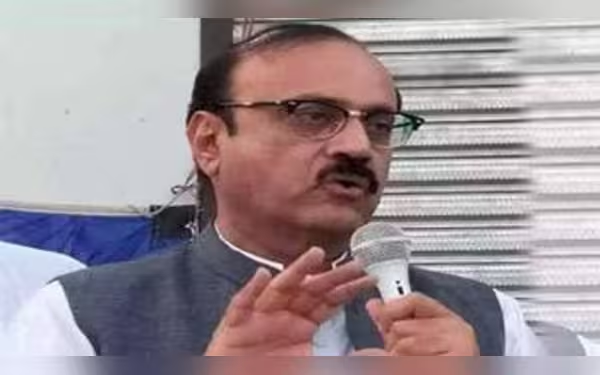Tuesday, July 2, 2024 03:47 PM
Punjab Government Faces Criticism Over Wheat Procurement Policy
- Opposition criticizes unclear wheat policy statement by Food Minister Bilal Yasin
- Minister admits wheat crisis, blames caretaker government for imports
- Lahore High Court sets deadline for Punjab government to respond to petition
 Image Credits: nation_pk
Image Credits: nation_pkThe Lahore High Court requests a response from the Punjab government on a petition challenging the wheat procurement policy. Opposition criticizes the policy statement, while Minister Bilal Yasin admits to a wheat crisis. The ongoing debate highlights concerns over farmers' welfare.
The Lahore High Court (LHC) has requested a response from the Punjab government regarding a petition challenging the wheat procurement policy. The Opposition in the Punjab Assembly has criticized the policy statement made by Food Minister Bilal Yasin, labeling it as unclear and detrimental to farmers. The Opposition expressed dissatisfaction when they were not allowed to respond to the minister's statement by Speaker Mohammad Ahmad Khan.
Minister Bilal Yasin admitted to a wheat crisis in the province, blaming the caretaker government for allowing wheat imports despite sufficient local stocks. He disclosed that 2.3 million metric tons of wheat were imported during that period. The minister assured the House of full support for small farmers, acknowledging their challenges and promising assistance.
Following the policy statement, the opposition called for a discussion, but the session was adjourned indefinitely by the speaker, citing previous extensive debates on the issue. In response, opposition leaders and members staged a peaceful protest on Mall Road, criticizing the government's lack of concrete solutions for farmers.
Meanwhile, the Lahore High Court has set a deadline of May 14 for the Punjab government to respond to a petition challenging the minimum support price and procurement policy for wheat. The petitioner argued that the current support price and policy were unconstitutional, citing discrepancies in costs and procurement targets that are adversely affecting farmers' livelihoods.
In conclusion, the ongoing debate over Punjab's wheat procurement policy reflects the concerns of both the government and the opposition regarding the welfare of farmers. The court's intervention underscores the significance of addressing these issues promptly to ensure fair treatment and support for agricultural workers.













